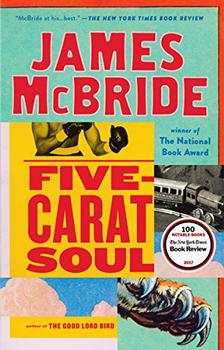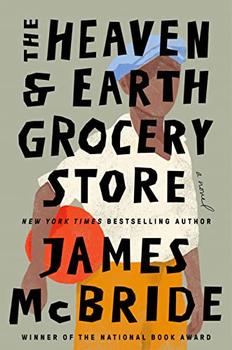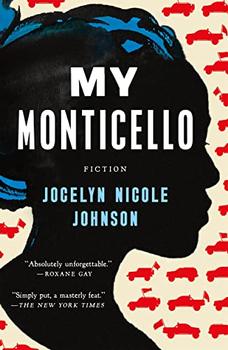Summary | Excerpt | Reviews | Beyond the book | Read-Alikes | Genres & Themes | Author Bio

Critics' Opinion:
Readers' Opinion:
First Published:
Sep 2017, 320 pages
Paperback:
Sep 2018, 336 pages
 Book Reviewed by:
Book Reviewed by:
Lisa Butts
Buy This Book
In the short story "Sonny's Blues," from the 1965 collection Going to Meet the Man, African-American author and social critic James Baldwin, known for his writing on race relations, explores the alienation between two brothers. The unnamed narrator is unable to understand his sibling Sonny, a musician and heroin addict, until he witnesses Sonny's remarkable performance at a jazz club. The resulting scene is one of the most memorable representations of music in literature. James McBride draws heavily from it in the opening story of Five-Carat Soul.
In McBride's version, a Jewish toy collector pursues the owner of a priceless model train all over New York City, finally catching up with him at a hip-hop club in Brooklyn. The owner turns out to be a rapping reverend, and the collector is shocked by the quality of his performance:
...a litany of nonstop cursing, roaring, funky, low-down, skuzzy, earth-
scrapping, to-the-bone brilliant, rhyming lyrics that made the previous
rappers before him seem like choirboys. His voice was unworldly. It sounded
like sandpaper grinding on a gravelly road, yet smooth as a glass of water...
Next, in a series of linked stories, McBride takes readers to "The Bottom," an impoverished town on the outskirts of Uniontown, PA, where a twelve-year-old protagonist named Butter relates the chicanery of the town's children and adults alike with wry humor and precocious wisdom. Two other tales are set during the Civil War. In the first, an orphaned child seeks his father, whom he believes to be Abraham Lincoln. In the other, Lincoln himself finds inspiration in the words of a stable-hand while mourning the death of his son Willie. The collection tilts surreal with "The Moaning Bench," a story about a group of people appearing in purgatory before the gatekeeper of hell. Then there's "Mr. P & the Wind," a sharp satirical allegory about slavery and the dangers that befall captors and captives alike.
Where some authors excel at characterization, McBride's stories are often strongest because of their settings. "Ecosystems" is perhaps a more apt term. In the series of vignettes from which the collection takes its title, the protagonist's hometown "The Bottom," is an achingly real emblem of Rust Belt poverty. The kids hang out in the "Cool Out Spot," where rival groups get along, "so long as you brung soda or cakes or something to trade or share," while the adults struggle to pay the electricity bill and hope against all odds for a brighter future for the youth.
Five-Carat Soul is woven around themes of slavery and racial segregation — from the many references to Lincoln, to the story of an all African-American regiment that fought in World War II. These work in concert with the collection's religious overtones to assert the significance of the soul. In a world beset by differences (of skin color, of species), God is the great equalizer. McBride's superb wit and imagination ensure that this is accomplished without sermons or rhetoric. His glory is in the understated, showing the grandest creatures in their humblest moments, from Lincoln in the White House stable to the caged King of the Jungle in "Mr. P & the Wind." Several of the stories also serve as a celebration of African-Americans' contributions to history, which one character, a member of an all-black regiment of the Union army during the Civil War (see Beyond the Book), argues for passionately:
The white folks'll know theirs, won't they? They'll write songs for 'em,
and raise flags for 'em, and put 'em in books...ain't nobody but God
gonna give more than a handful of feed to the ones of us who died out
here fighting for our freedom.
McBride, much like James Baldwin, is a captivating storyteller using his imaginative talents to explore the African-American experience. It is a burdensome history, and its repercussions are very much alive today, but with his light touch and use of allegory, McBride brings enchantment to the onerous.
![]() This review was originally published in The BookBrowse Review in October 2017, and has been updated for the
October 2018 edition.
Click here to go to this issue.
This review was originally published in The BookBrowse Review in October 2017, and has been updated for the
October 2018 edition.
Click here to go to this issue.

If you liked Five-Carat Soul, try these:

The Heaven & Earth Grocery Store
by James McBride
Published 2023
From James McBride, author of the bestselling Oprah's Book Club pick Deacon King Kong and the National Book Award–winning The Good Lord Bird, a novel about small-town secrets and the people who keep them.

by Jocelyn Nicole Johnson
Published 2022
A young woman descended from Thomas Jefferson and Sally Hemings driven from her neighborhood by a white militia. A university professor studying racism by conducting a secret social experiment on his own son. A single mother desperate to buy her first home even as the world hurtles toward catastrophe. Each fighting to survive in America.




Never read a book through merely because you have begun it
Click Here to find out who said this, as well as discovering other famous literary quotes!
Your guide toexceptional books
BookBrowse seeks out and recommends the best in contemporary fiction and nonfiction—books that not only engage and entertain but also deepen our understanding of ourselves and the world around us.